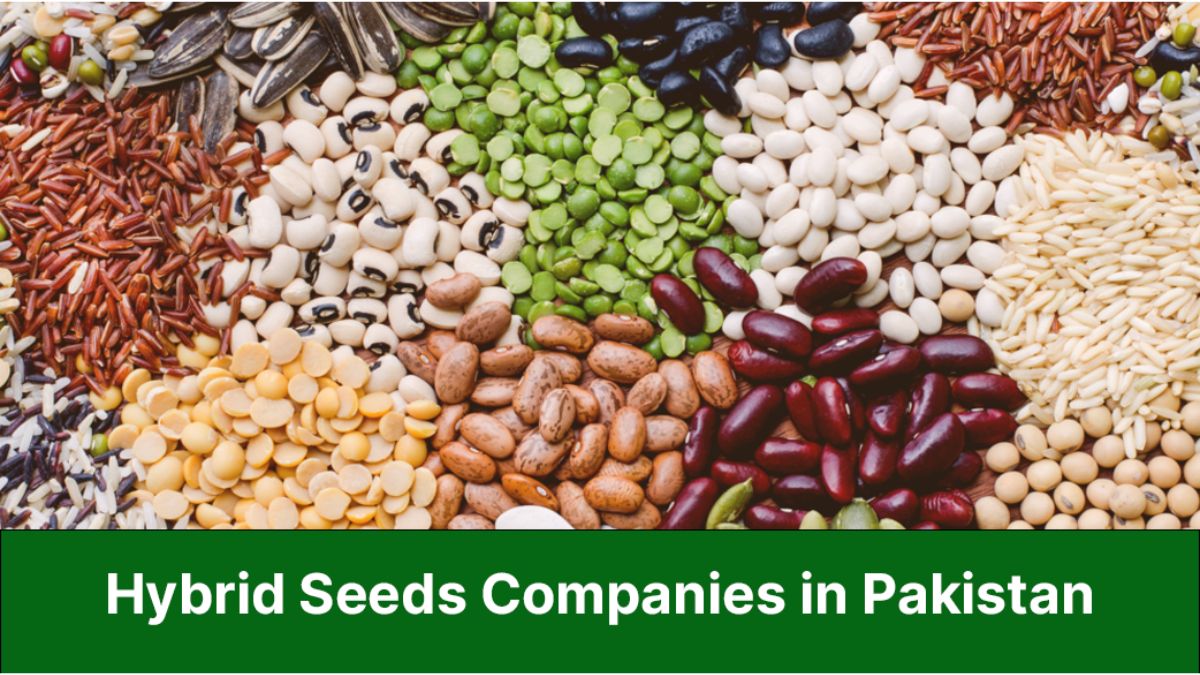Hybrid Seeds in Pakistan: Hybrid seeds have emerged as a transformative force in Pakistan’s agriculture sector, significantly improving crop yields, resilience, and overall farm productivity. With a growing population and shrinking arable land, the need for high-yield and climate-resilient crops has never been more urgent. Hybrid seed technology, driven by both public and private initiatives, is now central to meeting Pakistan’s food security and export potential.
Market Overview
The hybrid seed market in Pakistan was valued at approximately USD 930 million in 2025 and is expected to surpass USD 1.2 billion by 2030. With a growing adoption rate, hybrid seeds now cover a significant portion of the cultivated area in major crops like maize, rice, and cotton.
Read More: Govt Allocates Rs. 500M for Olive Farming
Key Crops Using Hybrid Seeds
| Crop | Adoption Rate | Popular Hybrid Varieties | Key Benefits |
|---|---|---|---|
| Rice | High (Punjab, Sindh) | Hybrid 909, 121, 152, 123 | Increased yield, pest resistance |
| Maize | Moderate to High | CS-200, ISRAR Shaheed | Higher output, climate resilience |
| Cotton | Growing | Bt Cotton (Post-Import Ban) | Bollworm resistance, fiber quality |
| Vegetables | Moderate | Various hybrids | Short growth cycle, market demand |
Hybrid rice varieties like Hybrid 909 and Hybrid 121 are now widely used in Punjab and Sindh, offering yields up to 7.5 tons per acre with enhanced resistance to lodging and pests. Similarly, maize production has improved significantly in regions like Khyber Pakhtunkhwa with the adoption of hybrids such as CS-200 and ISRAR Shaheed.
Cotton has witnessed a resurgence following the lifting of the ban on hybrid seed imports in 2025. Pakistan is now targeting a production increase from 4.9 million bales to over 10 million bales through genetically advanced, pest-resistant hybrid varieties.
Read More: Illegal Farming with Sewage Water Faces Strict Actions
Factors Driving Adoption
Several factors are influencing the widespread adoption of hybrid seeds in Pakistan:
- Government Policies: Removal of import bans, seed subsidies, and varietal approvals by PARC and provincial authorities.
- Public-Private Partnerships: Collaboration between local firms and global seed giants like Corteva, Syngenta, and Rijk Zwaan.
- Extension Services: Farmer education, access to credit, and training programs increase hybrid seed acceptance.
- High Returns: Increased yield, better pest resistance, and shorter crop cycles offer higher profitability to farmers.
Challenges and Concerns
Despite the advantages, challenges remain. Hybrid seeds are expensive, and farmers cannot reuse them, requiring yearly purchases. Additionally, the high input requirements—such as fertilizers and irrigation—pose difficulties for small-scale farmers. Weak infrastructure and limited extension services in rural areas also hinder full-scale adoption.
Conclusion
Hybrid seeds offer Pakistan a vital opportunity to transform its agricultural landscape by increasing yield, reducing crop loss, and meeting growing food demands. However, for widespread impact, strategic investment in R&D, farmer support, and rural infrastructure is crucial. With consistent government support and innovation-led private sector growth, hybrid seeds can help drive the next wave of agricultural productivity in Pakistan. Keep visiting: Bloom Pakistan
Read More: Sugar Mills in Punjab – 2025 Industry Overview









